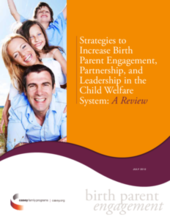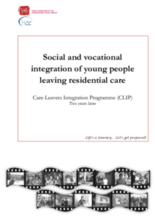Displaying 12921 - 12930 of 14561
This document from the National Statistical Service of the Republic of Armenia provides an overview and assessment of the alternative care system in the country.
This paper investigates the time–space practices of young people caring for their siblings in youthheaded households affected by AIDS in Tanzania and Uganda. Based on qualitative exploratory research with young people heading households, their siblings, NGO workers and community members, the article develops the notion of sibling ‘caringscapes’ to analyse young people’s everyday practices and caring pathways through time and space.
This guide provides step-by-step guidance and recommendations on how to identify and address gender-related issues that negatively affect vulnerable boys and girls in the local program context. It is intended to be a practical tool for staff involved in the design, implementation, monitoring and evaluation of care and support programs for vulnerable children. It provides directions and recommendations for programs to identify and address gender-related issues that negatively affect vulnerable boys and girls in the local program context.
In light of these challenges, during the summer of 2011, the International Organization for Adolescents (IOFA) conducted a needs assessment in Addis Ababa, Ethiopia that focused on identifying the strengths, needs, and risks of orphaned and vulnerable adolescents who are transitioning to independence. The data collected has served to inform the overall Transitions Initiative, led by IOFA, which aims to establish a comprehensive support system for youth aging out of care and to build awareness around the issues that this vulnerable population confronts
This paper focuses on appropriate responses to the unique challenges faced by young people at risk who are transitioning out of state care in South Africa.
The present study explories the preparation for adulthood experiences of young Ghanaian care-leavers with a particular focus on sources, needs and barriers to preparation for leaving care.
This Declaration on Child Rights and Wellbeing was adopted by the Partner States of the East African Community (EAC) in Bujumbura on 3rd September 2012 during the First EAC Child Rights Conference under the theme, “Addressing the issues that negatively impact on the realisation of child rights in the EAC.”
As an outgrowth of Casey’s ongoing work with birth parents, Research Services and Technical Assistance Unit collaborated to review strategies and programs that increase birth parent engagement with child welfare services and that develop effective child welfare partnerships with birth parents as mentors, leaders and advisers.
The chapters in this book discuss the complexity immediately encountered when approaching the task of improving the lives of Looked After Children (LAC).
This paper evaluates a program started by International Social Service for social and professional realisation of young people leaving care (Care Leavers Integration Programme, CLIP), ten years after the program began.




